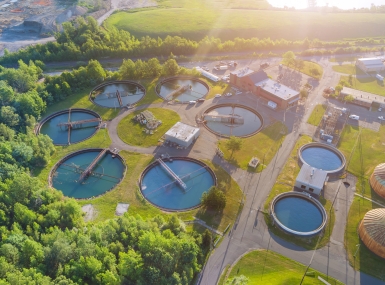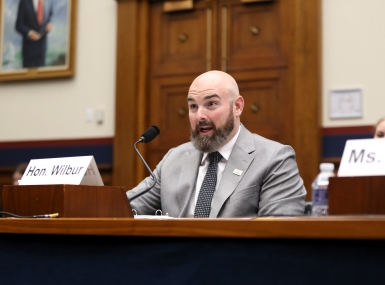Congress passes nearly $12 billion water bill in late-night vote before adjourning for the year
Upcoming Events
Related News

Water Infrastructure Improvements for the Nation Act authorizes 30 new infrastructure projects
President Obama is expected to sign a major water infrastructure package after the Senate voted at 1 a.m. on Dec. 10 to pass the Water Infrastructure Improvements for the Nation (WIIN) Act (S. 612). The bill passed easily by a vote of 78–21. Included in S. 612 is the Water Resources Development Act (WRDA), which both the House and Senate passed earlier this year. The Senate passed its version of WRDA on Sept. 15 by a vote of 95–3, while the House passed a slightly different version on Sept. 28 by a vote of 399–25.
A few senators, led by Sen. Barbara Boxer (D-Calif.), threatened to hold up the bill over concerns about language to address the California drought, arguing that the measure would weaken environmental protections and harm California fisheries. These members were ultimately unable to block the bill’s passage.
The final legislation authorizes 30 new infrastructure projects across the country and provides $170 million in aid to address the drinking water crisis in Flint, Mich. It also includes language to allow EPA to approve state programs for the disposal of coal ash and addresses national drought situations, particularly in California.
With WRDA attached, the WIIN Act allows the Army Corps of Engineers (Corps) to make much-needed repairs and improvements to America’s dams, ports, waterways, flood protection and other critical water infrastructure.
In addition to authorizing new Corps projects and addressing drinking water emergencies, the WIIN Act also ensures the solvency of the Harbor Maintenance Trust Fund, authorizes $20 million for the Water Infrastructure Financing Innovation Act (WIFIA), provides for the rehabilitation of high-hazard, non-federal dams and establishes a pilot program to help carry out projects that make use of dredged material.
Despite passage of the WIIN Act, Congress must still appropriate funding for most of the projects within the bill (aid for Flint, Mich. was appropriated through a separate continuing resolution earlier that night). This means that the debate over how to actually fund the package will likely fall to the next Congress along with other appropriations priorities.
Attachments
Related News
Interest in energy generation builds in the West
Counties are exploring the potential for energy generation on their public lands, but local control will set the stage for a tradeoff.

U.S. Environmental Protection Agency announces actions to combat PFAS contamination
On April 28, the U.S. Environmental Protection Agency (EPA) announced a new suite of upcoming actions to address contamination from per- and polyfluoroalkyl substances (PFAS). These measures, outlined by EPA Administrator Lee Zeldin, aim to strengthen scientific understanding, enhance enforcement and build partnerships with impacted communities, including counties and other local governments.

County official urges Congress to boost brownfields cleanup funding
Oswego County, N.Y. Clerk Terry Wilbur told the House Transportation and Infrastructure’s Subcommittee on Water Resources and Environment that brownfields can present land use challenges and negatively affect property values, but can provide counties with an opportunity to revitalize their economies and communities.